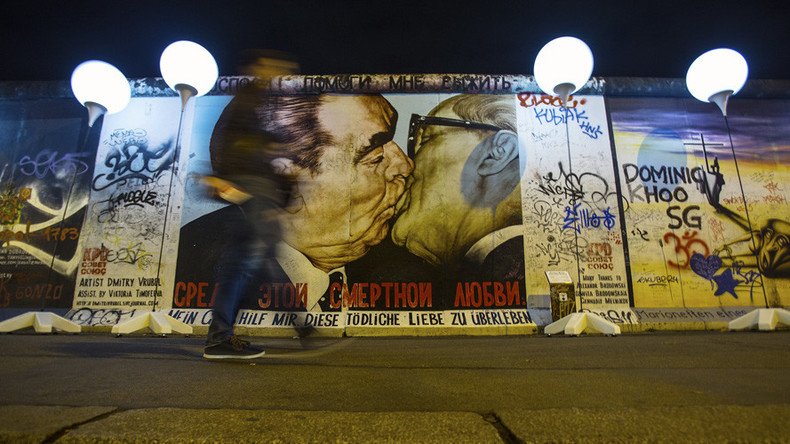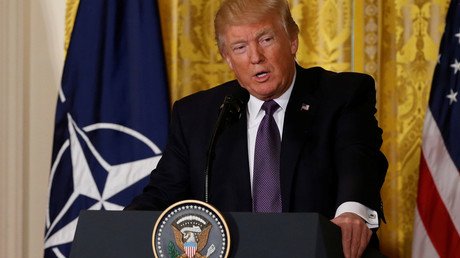Russia-NATO relations at worst point since Cold War – Moscow

Russia and NATO are facing the deepest crisis in relations since the Cold War, the Russian Foreign Ministry said. Moscow believes the alliance’s ongoing military buildup could fuel a dangerous arms race.
“We have to admit that at this stage, Russia-NATO relations are in the deepest crisis since the end of the Cold War,” the Russian Foreign Ministry said in a statement dedicated to the 20th anniversary of establishing cooperation with the alliance.
On May 27, 1997, Russia and NATO signed the ‘Founding Act on Mutual Relations, Cooperation and Security,’ aimed at establishing “lasting and inclusive peace in the Euro-Atlantic area” and bringing an end to earlier confrontation. The ministry said that NATO “unilaterally froze” cooperation projects and chose “NATO-centered security architecture.” This is evidenced by the military and political deterrence of Russia, and could lead to the worsening of tensions in the Euro-Atlantic region, it added.
Strengthening NATO’s “eastern flank” through the military buildup near Russian borders and a constant military presence waters down the main bilateral agreements, the statement says. The ministry added that such actions are “dangerous and contradictory to the interests of NATO member states.”
“We see this as the desire of the alliance to legitimize its military preparations near Russian borders, which together with the military activity of particular countries of the block are changing the balance of power in Europe and lead to a dangerous arms race,” the Foreign Ministry said.
READ MORE: Trump wants to 'get along' with Russia but says NATO 'no longer obsolete'
While NATO tries to prove its importance by exaggerating “the threat from the East,” many states lack the will to combat common security threats as European and international security depends on Russia-NATO relations, the statement adds.
The ministry stressed that “the growing negative tendencies are not Russia’s choice,” but are rather the direct result of a longstanding and destructive NATO policy, aimed at the bloc’s “political and military domination in European and international issues.”
Relations were also touched upon by world leaders during the latest meeting of NATO members in the Belgian capital, Brussels. During his speech at the summit, US President Donald Trump said that the alliance must focus on “threats from Russia, and on NATO's eastern and southern borders" among other issues.
However, during the informal talks the so-called "Russian threat" caused some disagreement. EU Council President Donald Tusk said that he was not absolutely sure that he and Trump shared a common position and opinion about Russia.
Back in April, the US leader said “it would be wonderful if we could get along” with Russia. Earlier in May, Russian diplomats met Trump in Washington and discussed mutual cooperation issues, including the resolution of the Syrian crisis.
Russia-NATO relations have soured since the beginning of the crisis in Ukraine in 2014, with the alliance suspending all practical cooperation, including meetings of the NATO-Russia Council (NRC).













